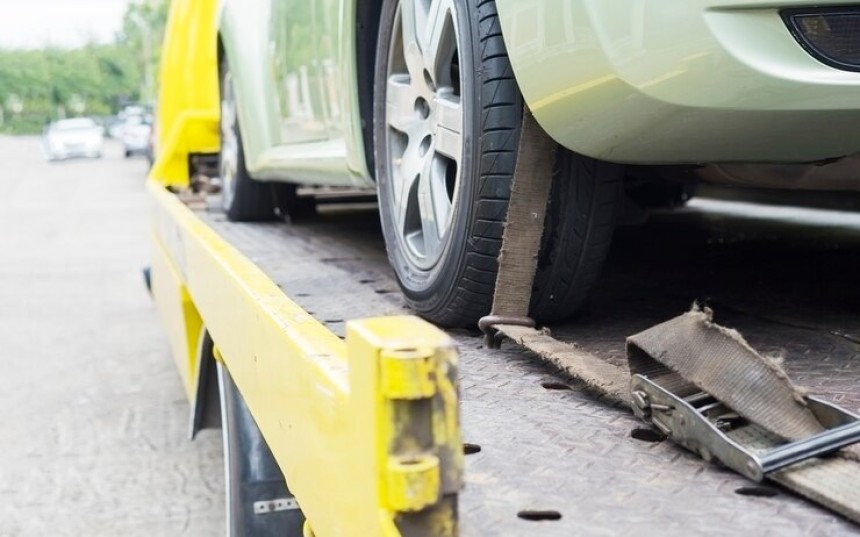
How Long Does A Repo Stay On Your Credit?
A car repossession whether voluntarily or involuntarily can stay on your credit history for up to 7 years. Learn what you can do to after this happens or how to prevent it.
How Long Does a Repo Stay on Your Credit?A repossession, often referred to as a “repo,” is a serious event that can significantly impact your credit score and financial stability. When you default on a loan secured by an asset—such as a car or home—the lender has the legal right to reclaim the property. This process is known as repossession, and it can have lasting repercussions on your credit history. In this article, we'll explore how long a repossession stays on your credit report, the implications it has for your financial health, and what you can do to mitigate its effects.
Understanding RepossessionRepossession occurs when you fail to make payments on a secured loan, and the lender takes back the property used as collateral. This is common with auto loans, mortgages, and other types of secured credit. When a repossession happens, it’s recorded on your credit report, which is a detailed record of your credit history and financial behavior.
Repossession can be classified into two main types:
- Voluntary Repossession: This happens when you return the asset to the lender on your own accord, usually because you can no longer afford the payments.
- Involuntary Repossession: This occurs when the lender repossesses the asset without your consent, typically following missed payments and after a formal notice process.
A repossession will stay on your credit report for up to seven years from the date of the original missed payment that led to the repossession. This duration is established by the Fair Credit Reporting Act (FCRA), which regulates how long negative information can remain on your credit report.
Here’s a breakdown of how it works:
- Date of First Delinquency (DFD): The seven-year period begins from the date you first missed a payment that eventually led to the repossession. This is known as the Date of First Delinquency (DFD). For instance, if you missed your first payment in January 2020 and the lender repossessed the vehicle in January 2021, the seven-year period starts from January 2020.
- Impact of Repossession on Your Credit Report: During this period, the repossession will appear as a negative entry on your credit report. It will impact your credit score, making it harder for you to qualify for new credit or loans. Your score will gradually improve over time, especially if you maintain good credit behaviors, but the repossession itself will remain on your report.
A repossession can cause a significant drop in your credit score. This is because it indicates to lenders that you failed to meet your credit obligations, suggesting higher risk to future creditors. The exact impact on your score can vary based on:
- Your Current Credit Score: If you had a high credit score before the repossession, the drop might be more substantial compared to someone with a lower score.
- Your Overall Credit History: A repossession is more damaging if you have a short credit history or a limited number of accounts.
While a repossession can have a long-lasting effect, there are steps you can take to mitigate its impact and rebuild your credit:
- Check Your Credit Reports: Regularly review your credit reports from all three major credit bureaus (Equifax, Experian, and TransUnion) to ensure the repossession is reported accurately. You can obtain free reports from AnnualCreditReport.com.
- Dispute Inaccuracies: If you find errors in how the repossession is reported, such as incorrect dates or balances, dispute these inaccuracies with the credit bureaus. They are required to investigate and correct any errors.
- Pay Off Remaining Balances: If there’s a remaining balance after the repossession—known as a deficiency balance—make sure to address it. Paying off this balance can prevent further collection actions and additional negative entries on your credit report.
- Rebuild Your Credit: Focus on rebuilding your credit by making timely payments on other credit accounts, reducing debt, and avoiding new negative entries. Consider secured credit cards or credit builder loans to help improve your credit score.
- Seek Financial Counseling: If you’re struggling with managing your finances or understanding how to rebuild your credit, consider consulting a financial advisor or credit counselor. They can provide personalized advice and strategies to help you recover.
Understanding your legal rights and protections is also crucial in the repossession process:
- Notice Requirements: Lenders are required to provide you with a notice before repossessing your property. This notice typically includes information on how to avoid repossession and the steps you can take.
- Redemption Rights: In some states, you may have the right to redeem your property by paying the outstanding balance and any additional fees before it is repossessed. Check your local laws for specifics.
- Repossession Fees: The lender might charge fees related to the repossession process, which could be added to your account balance. Understanding these fees can help you address any outstanding amounts effectively.
The best way to deal with repossession is to prevent it from happening in the first place. Here are some strategies to avoid repossession:
- Budget Management: Create a realistic budget that includes all your financial obligations. Ensure that you prioritize debt payments and avoid overextending yourself.
- Communication with Lenders: If you’re having trouble making payments, communicate with your lender as soon as possible. They may offer temporary relief options, such as payment deferrals or modifications.
- Emergency Fund: Building an emergency fund can provide a financial cushion for unexpected expenses or temporary loss of income, reducing the risk of default.
- Refinancing Options: Explore refinancing options to lower your monthly payments. This can make your debt more manageable and reduce the risk of repossession.
A repossession can have a significant impact on your credit report and financial health, remaining on your credit report for up to seven years from the Date of First Delinquency. While this negative entry can affect your credit score and borrowing ability, there are steps you can take to manage its impact, rebuild your credit, and prevent future repossessions. By understanding your rights, staying proactive in managing your finances, and seeking professional advice if needed, you can navigate the aftermath of a repossession and work towards a healthier financial future.





